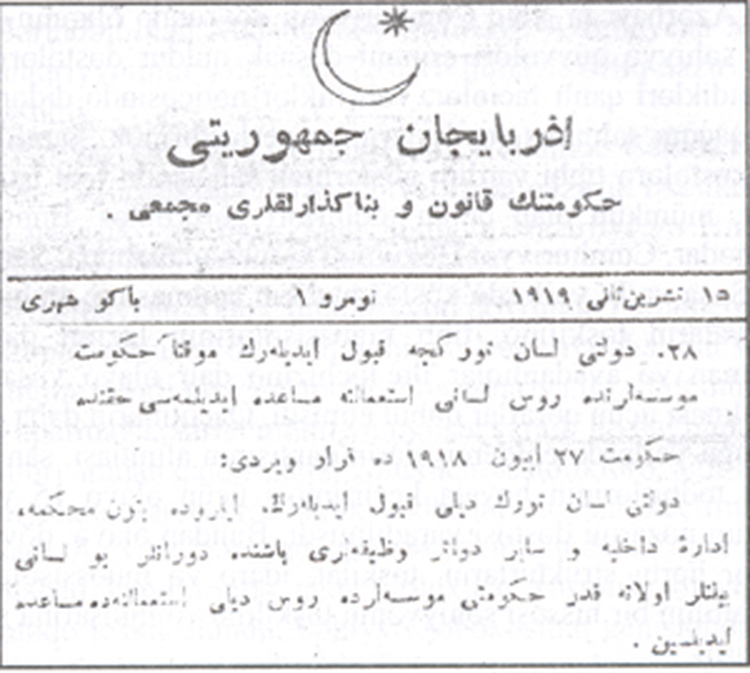Language
One of the significant attributes of the independent country – the state language was the focus of attention of the government of the newly established Azerbaijan Democratic Republic. By the decree dated June 27, 1918 the government of the Republic declared the Azerbaijani language, which was called Turkic language at that time, the state language. That decree is the first official document on approval of the native language as the state language of Azerbaijan.

language as a state language
This decree allowed the use of the Russian language at the government institutions by the top-ranking officials of the court, administrative management and other high positions until they learn Azerbaijani up to the mark. But that temporary measure arose from the actual state of affairs and was intended for preparing of national staff in the management.
The nationalization of educational institutions was one of the immediate goals due to declaration of the native language as the state language. On August 28, 1918 the Government of Azerbaijan Democratic Republic adopted a decree on provision of education in native language in primary and secondary educational institutions. According to the decree in all the primary educational institutions the education was conducted in native language. Meanwhile, the teaching of the state language was compulsory.
On December 27, 1918, by the order of the minister of defense of the Azerbaijan Democratic Republic Samed bey, the Azerbaijani – Turkic language was used as the state language in the army as well. On February 11, 1919 the government adopted a decree on ratification of cavalry troops regulations of the Azerbaijan National Army in Turkic language.
The language used by the Parliament of Azerbaijan Democratic Republic was official state language - Azerbaijani Turkic. The speech of the representatives of the other nationalities in Russian was acceptable. There were significant differences between the written language and oral speech in Parliament. The language of the documents and proposals was guided by the general or compulsory principles with some exceptions, but the oral speech was much freer as a rule.
